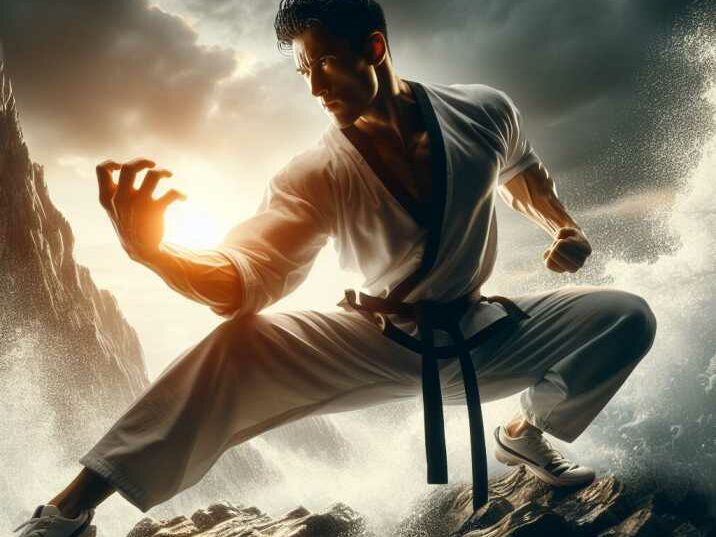Introduction:
Table of Contents
In a world filled with challenges and obstacles, the ability to bounce back from adversity is a valuable skill. Kung Fu training, with its rich history and holistic approach, offers more than just physical prowess—Kung Fu Training Improves Resilience in the Face of Adversity, enabling individuals to navigate life’s ups and downs with grace and strength. In this comprehensive guide, we will delve deep into the roots of Kung Fu and how Kung Fu Training Improves Resilience in the Face of Adversity.

The Essence of Kung Fu:
Kung Fu is not merely about combat; it’s a way of life—a philosophy that emphasizes discipline, perseverance, and self-mastery. Rooted in ancient Chinese traditions, Kung Fu encompasses a diverse range of martial arts styles, each with its unique techniques and principles.
Building Physical Resilience:
Kung Fu training is renowned for its rigorous physical conditioning. Through repetitive movements, stances, and exercises, practitioners develop strength, flexibility, and endurance. This physical resilience not only enhances combat skills but also prepares individuals to withstand the demands of daily life.
Mental Fortitude and Focus:
Central to Kung Fu training is the cultivation of mental fortitude. Practitioners learn to quiet the mind, sharpen focus, and remain calm under pressure. This mental discipline is invaluable when facing adversity, enabling individuals to approach challenges with clarity and determination.
Emotional Resilience and Self-Awareness:
Kung Fu is as much about inner strength as it is about physical prowess. Through meditation, introspection, and mindfulness practices, practitioners develop emotional resilience and self-awareness. They learn to harness their emotions, overcome fear, and maintain balance even in the face of adversity.
The Role of Discipline and Perseverance:
At the heart of Kung Fu training lies discipline and perseverance. Practitioners commit to years of dedicated practice, honing their skills and refining their technique. This relentless pursuit of mastery instills a sense of resilience that extends beyond the training hall and into all aspects of life.
Empowering Individuals to Face Adversity:
By integrating physical, mental, and emotional elements, Kung Fu training equips individuals with the tools they need to thrive in the face of adversity. Whether it’s a personal setback, professional challenge, or unexpected crisis, practitioners draw upon their training to persevere, adapt, and overcome.

Conclusion:
In a world where resilience is often the key to success, Kung Fu training offers a time-tested path to empowerment. By nurturing physical strength, mental fortitude, and emotional resilience, it prepares individuals to face life’s challenges with confidence and grace.
Table of Information Kung Fu Training Improves Resilience:
| Aspect | Description |
|---|---|
| Physical Resilience | Enhanced strength, flexibility, and endurance through rigorous training. |
| Mental Fortitude | Sharpened focus, calmness under pressure, and clarity of mind cultivated through meditation and mindfulness practices. |
| Emotional Resilience | Self-awareness, emotional balance, and fear management developed through introspection and mindfulness. |
| Discipline and Perseverance | Commitment to long-term practice and continuous improvement, instilling resilience in all aspects of life. |
FAQs:
- What is Kung Fu? Kung Fu is a traditional Chinese martial art that encompasses a wide range of fighting styles, emphasizing self-defense, discipline, and holistic well-being.
- How does Kung Fu training improve resilience? Kung Fu training improves resilience by developing physical strength, mental fortitude, and emotional balance, equipping individuals to face adversity with confidence.
- Can anyone learn Kung Fu? Yes, Kung Fu is accessible to people of all ages and fitness levels. With dedication and practice, anyone can learn and benefit from its teachings.
- Is Kung Fu only about combat? While combat techniques are a part of Kung Fu, its focus extends beyond fighting. Kung Fu promotes self-discipline, self-awareness, and personal growth.
- How long does it take to become proficient in Kung Fu? The time it takes to become proficient in Kung Fu varies depending on individual dedication, practice frequency, and the specific style being learned. Generally, it requires years of consistent training to achieve mastery.


